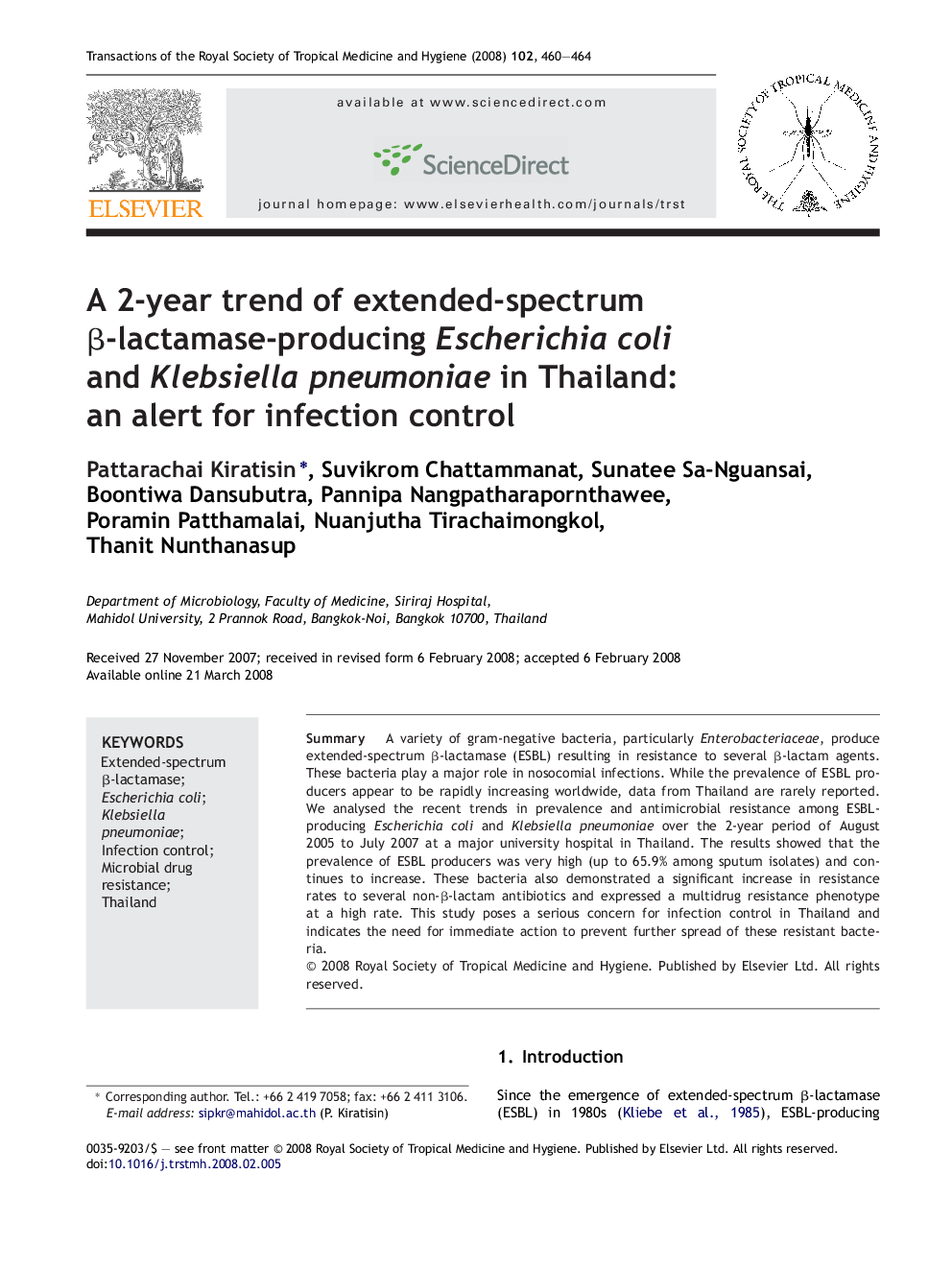| Article ID | Journal | Published Year | Pages | File Type |
|---|---|---|---|---|
| 3420812 | Transactions of the Royal Society of Tropical Medicine and Hygiene | 2008 | 5 Pages |
Abstract
A variety of gram-negative bacteria, particularly Enterobacteriaceae, produce extended-spectrum β-lactamase (ESBL) resulting in resistance to several β-lactam agents. These bacteria play a major role in nosocomial infections. While the prevalence of ESBL producers appear to be rapidly increasing worldwide, data from Thailand are rarely reported. We analysed the recent trends in prevalence and antimicrobial resistance among ESBL-producing Escherichia coli and Klebsiella pneumoniae over the 2-year period of August 2005 to July 2007 at a major university hospital in Thailand. The results showed that the prevalence of ESBL producers was very high (up to 65.9% among sputum isolates) and continues to increase. These bacteria also demonstrated a significant increase in resistance rates to several non-β-lactam antibiotics and expressed a multidrug resistance phenotype at a high rate. This study poses a serious concern for infection control in Thailand and indicates the need for immediate action to prevent further spread of these resistant bacteria.
Keywords
Related Topics
Life Sciences
Immunology and Microbiology
Applied Microbiology and Biotechnology
Authors
Pattarachai Kiratisin, Suvikrom Chattammanat, Sunatee Sa-Nguansai, Boontiwa Dansubutra, Pannipa Nangpatharapornthawee, Poramin Patthamalai, Nuanjutha Tirachaimongkol, Thanit Nunthanasup,
